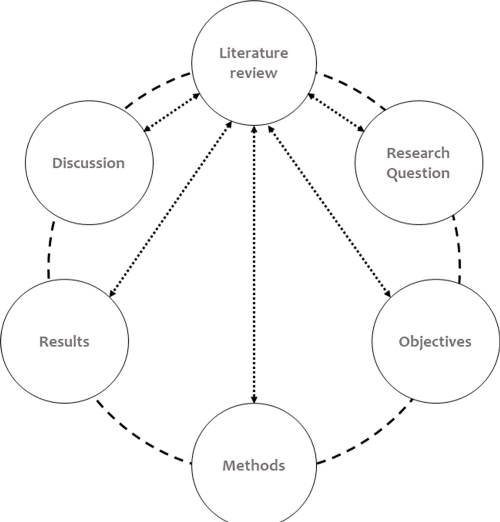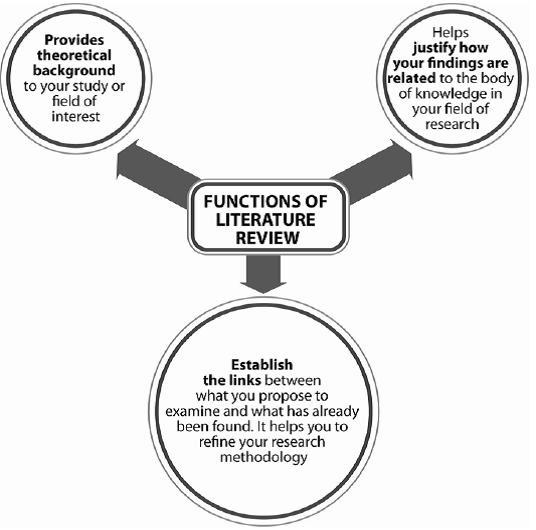Importance of Writing Literature Review in Postgraduate Dissertation
In Brief
- The goal of writing literature reviews is to summarize the dissertation topic and also to integrate the existing knowledge in the field.
- A good literature review must cover the relevant literature and also integrate it.
- The literature review helps to understand the research areas better and assists in conceptualizing the research problem precisely and clearly.
Introduction
A highly developed literature review (LR) can strengthen a dissertation/thesis by analyzing the main problem areas by the academic study, predicting assumptions of the research, methods, and results, and by upholding the excitement of the audience in knowing the solution for the dissertation/thesis in a particular field. But, students need a little guidance from the experts on elaborating LRs, and writing a literature review for a dissertation is not an easy task. An efficient LR proves the abilities of the students in the language domain, information literacy, and critical writing. Postgraduate students should be trained systematically in these skills. The main goal of this paper is to discuss the functions of LR in dissertations and thesis. Writing the literature review (LR) is a tricky task in a postgraduate’s life. This paper explains the ways to develop an efficient LR in postgraduate dissertation/thesis and its importance. 1
The need for writing a literature review
Typically, the aim of writing literature reviews is to summarize the dissertation topic and also to integrate the existing knowledge in the field. There are three main situations to write a literature review.
- A standalone review article of the literature for a particular topic.
- An empirical paper’s introduction and the basis for a hypothesis.
- The preliminary stage for a dissertation.

However, for a postgraduate dissertation, systematic LR is more useful than a traditional literature review. Systematic LR is a precise method that forms the basis for building an entire article based on reviewing the literature without gathering empirical data. They provide answers to a research question. In research articles, conversely, a literature review does not necessitate answering a research question on its own; instead, a literature review provides a short summary of the research topic and helps to identify the main theory of the paper. (Kraus, Breier, & Dasi-Rodriguez, 2020)
Main characteristics of a good literature review
A good literature review must deal with different requirements of the field; cover all literature that is relevant to the topic and also integrate it with clarity.
- Coverage – Literature that is relevant to the topic must be referenced and must be covered by the text. The length of the dissertation must be addressed carefully, and the topic should be discussed deeply, than doing a superficial overview of various arguments.
- Synthesis – Not just a long list of references implies a good literature review but, it should also summarize and connect relevant literature. Synthesis needs creativity to build an innovative, fresh, new view of the topic, which reveals the uniqueness of the concept developed by the students.
- Rhetoric – The content must be clear and consistent, and well-articulated, which should not make unproven claims.
- Significance – The literature review must explain the significance of the practical and theoretical part of the research problem. It is strongly recommended to explain the research with proper evidence, and also to show the theoretical aspects. (Nakano & Muniz Jr., 2018)

Literature review process
A road map or blueprint is required for the researcher to conduct a literature review to stay on track and not diverge from the topic. Thus, the process of literature review involves.
- Review topic selection.
- Searching the literature for references.
- Collecting, interpreting, and analyzing the literature.
- Review writing.
- References. (Kofi, 2020)
Importance of writing a literature review
- Improving Research Methodology: Literature review helps students to identify and use research methodologies of other researchers that assist in solving research questions. The procedures used by other researchers are explained in the review of the literature and also the methods used by them that are similar to the proposed one. It helps students to get an idea about the methods used by other researchers, and the problems faced by them. It also helps students to incorporate those methods in their assignment writing process.

- Focus on Research Problem: Literature review helps to shape the research problems as it helps to understand the research field better and thus assists in conceptualizing the research problem precisely and clearly. Additionally, it also assists to identify the association between the research problem and knowledge in the field of research.
- Cater to Knowledge Base for Research Area: The main objective of writing a literature review is to ensure that the students who write dissertations conduct wide research around the subject area in which the research is done. It is essential for a student to know what researchers are doing in the same field of interest or the related topic that you are working on.
- Contextualizing Research Findings: Extracting answers for the research questions is simple. The complexity is based on how the research question is analyzed in the existing body of knowledge. It is important to use the findings in the research which has been previously found.
- Ensure Novelty in your Work: By writing a literature review, make sure to discover something that is very innovative and not to waste time in rediscovering that has been published before by others. Therefore, the process of writing a literature review could guarantee innovation and a new contribution to the research work. (Macauley, 2020)
Conclusion
The foundation for all kinds of research is the review of literature which plays a significant role. They serve as a foundation for the development of knowledge, provides a strategy for policy and practice, grants effective evidence, and, if conducted well, have the capacity to provoke innovative ideas. By itself, it serves as the ground for future research and theory. However, conducting a review of the literature and assessing its quality is a tricky task. Thus, this paper provides simple guidelines on how to conduct the research in a more precise way. (Snyder, 2019)
Future work
Writing a literature review is a difficult and essential process to understand one’s own field of knowledge which is always transitory. But as scholars, our responsibility is to provide a vital contribution to our field and letting others feel our work. Good researchers are stuck with sophisticated LRs, which expose the long-lasting academic skills of a writer. In the future, it is recommended to use the checklist of LR as a tool to strengthen the skills required for significant dissertation/thesis writing. (Leite, Padilha, & Cecatti, 2019)
References
- Kofi, K. S. (2020). A Guide To Literature Review. Retrieved from https://www.academia.edu/8919533/A_GUIDE_TO_LITERATURE_REVIEW
- Kraus, S., Breier, M., & Dasi-Rodriguez, S. (2020). The art of crafting a systematic literature review in entrepreneurship research. International Entrepreneurship and Management Journal, 1–20. Retrieved from https://link.springer.com/content/pdf/10.1007/s11365-020-00635-4.pdf
- Leite, D. F. B., Padilha, M. A. S., & Cecatti, J. G. (2019). Approaching literature review for academic purposes: The Literature Review Checklist. Clinics, 74. Retrieved from https://www.scielo.br/scielo.php?pid=S1807-59322019000100318&script=sci_arttext
- Macauley. (2020). Review of literature. Retrieved from https://www.researchgate.net/profile/Arvind_Singh56/post/discuss_the_importance_of_good_detailed_literature_review/attachment/5b76dad63843b00244066172/AS%3A660621829894147%401534515926673/download/2011-0021_22_research_methodology.pdf
- Nakano, D., & Muniz Jr., J. (2018). Writing the literature review for empirical papers. Production, 28. https://doi.org/10.1590/0103-6513.20170086
- Snyder, H. (2019). Literature review as a research methodology: An overview and guidelines. Journal of Business Research, 104, 333–339. https://doi.org/10.1016/j.jbusres.2019.07.039

 Previous Post
Previous Post Next Post
Next Post